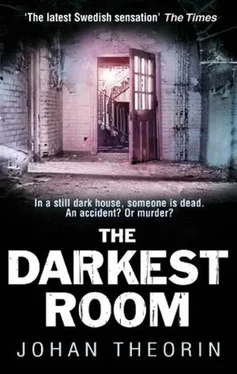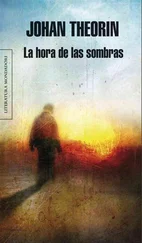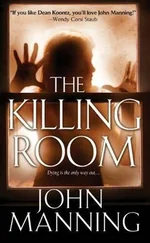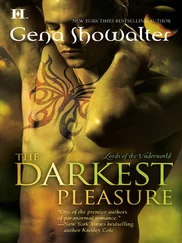“We’ll take a break,” said Tommy as they reached the streetlights of the town. “A little bit of time off.”
They pulled in by Henrik’s apartment block. It was quarter past three.
“Okay,” he said, opening the door. “And we need to go through the money… make sure it’s all sorted.”
He wasn’t about to forget that the Serelius brothers had been about to drive off and leave him up in the forest.
“We’ll be in touch,” said Tommy through the open window of the van.
Henrik nodded and walked toward the building.
It wasn’t until he was inside his apartment that he realized how filthy he was. His jeans and jacket were covered in black stains from the soil. He threw them in the laundry basket, drank a glass of milk, and stared blankly through the window.
His recollections of the night in the vicarage had been vague from start to finish, and he had no desire to go over them again. Unfortunately, his clearest memory was of the old man’s hand crunching beneath his boot. He hadn’t meant to do that, but…
He turned the light off and went to bed.
It was difficult to get to sleep, his forehead was aching and his nerves were buzzing all over his body, but sometime after four he slipped into the mists.
A couple of hours later Henrik was woken by the sound of knocking in the apartment.
The sound of knocking on glass. Then silence.
He raised his head from the pillow and looked around the darkness of the room in confusion.
The soft sound of knocking came again. It seemed to be coming from the hallway.
Henrik left the warmth of his bed and staggered out into the shadows to listen.
The knocking was coming from his rucksack. Three knocks, then silence. Then a couple more knocks.
He bent down and unzipped the bag. The old lantern from the vicarage was inside, still wrapped in the tablecloth.
Henrik lifted it out.
The wooden frame of the lantern had cooled down in the van, presumably. Now it was getting back up to room temperature. That’s why it was clicking and knocking.
He placed the lantern on the kitchen table, closed the door, and went back to bed.
The sound of faint knocking could be heard from the kitchen from time to time. It was just as irritating as a dripping faucet, but Henrik was so tired he eventually went to sleep anyway.
The important thing was never to forget Katrine.
Every time Joakim forgot her, even if it was only for a moment, the pain returned inexorably when he suddenly remembered that she no longer existed. For that reason he tried to keep her in his thoughts all the time-just beyond the border where grief took over, but keeping her constantly present.
On the Sunday three weeks after the accident, he took the children on a long trek in the area around the manor house. They started by heading west, inland, and Joakim could feel the presence of Eel Point behind him; he imagined that Katrine had stayed behind indoors to put up some wallpaper. Maybe she would soon come out into the fields and catch up with them.
It was a windy but sunny November day, and they had pastries and hot chocolate with them. Joakim’s rucksack had a built-in child’s carrying seat where Gabriel could sit when
he was tired, but most of the time he was running across the meadows with Livia.
When they reached the main highway, Joakim shouted to them to stop, and they all crossed over together after looking in both directions, as Livia and Gabriel had learned.
Livia had slept more peacefully for the last few nights and didn’t seem the least bit tired, but Joakim could feel the constant lack of sleep like a swollen weight behind his eyes. He felt slightly better during the day now he had set to work on the house again, but the nights were still difficult. Even when Livia was fast asleep, he lay there awake in the darkness, waiting. Listening.
Talking in her sleep didn’t seem to have any negative effects on Livia-almost the reverse.
But she had started bringing home drawings she’d done at preschool. Many of them showed a woman with yellow hair, sometimes standing in front of a blue sea, sometimes in front of a big red house. Above the picture she had written mommy in sprawling letters.
Livia still asked almost every morning and evening when Katrine was coming home, and Joakim always gave the same answer: “I don’t know.”
An old stone wall ran along the other side of the road, and when they had climbed over it they found themselves at the edge of a flat, gray landscape with open water between patches of reeds and clumps of pale yellow grass. The water was black and still; it was impossible to tell how deep it was.
“This is called a peat bog,” said Joakim.
“Can you drown here?” asked Livia.
She tried pushing a stick down into a muddy puddle, and didn’t notice that the question had made Joakim tense up.
“No… only if you can’t swim.”
“I can swim!” shouted Livia.
She had been to four swimming lessons in Stockholm during the summer.
Gabriel suddenly screamed and started to cry-he had
sunk down and got his galoshes stuck in the grass by the water. The muddy ground let him go with a disappointed slurp when Joakim pulled him out. He put Gabriel down on firm ground, looked out over the black water, and suddenly remembered something the agent who showed them around the house at Eel Point had told them as they were driving past the peat bog.
“Do you know what they used to do out here in the Iron Age?” he asked. “Hundreds and hundreds of years ago?”
“What?” said Livia.
“I’ve heard that they used to sacrifice things to the gods.”
“Sacrifice-what does that mean?”
“It means that you give away things you like,” said Joakim. “In order to get even more back.”
“So what did they give away, then?” asked Livia.
“Silver and gold and swords and that kind of thing. They threw them into the water as a gift to the gods.”
According to the agent, animals and human beings had also been sacrificed sometimes-but stories like that were definitely not for the ears of the children.
“Why?” said Livia.
“I don’t know… but I suppose they believed it would make the gods happy, and they would make life easier.”
“What kind of gods were they?” said Livia.
“Pagan gods.”
“What does that mean?”
“Well, it means they were… a bit nasty sometimes,” said Joakim, who wasn’t too good on the history of religion. “Norse gods like Odin and Freya. And nature gods in the earth and the trees. But they don’t exist any longer.”
“Why not?”
“Because people stopped believing in them,” said Joakim, setting off again. “Let’s go. Do you want to sit in the rucksack seat, Gabriel?”
His son shook his head cheerfully and scampered off after Livia again. A narrow path ran along the side of the bog, and
they followed it northward. At the end of the bog lay fields, and beyond them was Rörby with its white church rising up on the horizon.
Joakim would have liked to walk much further, but by the time they got to the fields the children had slowed down considerably. He took off his rucksack.
“Time for a snack.”
It took them a quarter of an hour to empty the flask of hot chocolate and eat up all the pastries. They found dry rocks to sit on, and everything was silent all around them. Joakim knew that the peat bog was a bird sanctuary, but they didn’t see a single bird all day.
After they had eaten, they crossed back over the main road. Joakim chose a path alongside the little wood that grew northwest of Eel Point. The wood was low growing and bushy, like all the woods he had seen on the island. It consisted of pine trees, all leaning slightly inland, away from the harsh winds coming off the sea. Among them grew thickets of hazel and hawthorn.
Читать дальше










